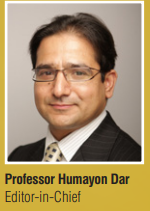
Welcome to the first issue of ISFIRE in 2013. The previous year ended as a bumper year for sukuk (with US$144 billion worth of new sukuk issued during the year) and industry observers believe that the trend will continue in 2013.
While we hope that the Islamic financial services industry continues to grow in the markets where it has already made a mark, the real growth will come in markets where Islamic banking is just starting – the likes of Egypt, Libya and Tunisia are countries with industry observers should keep a close eye on. Oman is another country that consultancies, IT solution providers, Shari’a advisors and others have started focusing on, following the long-awaited royal decree in December 2012, which allowed Islamic and conventional banks to start their Islamic operations.
While Malaysia will continue to play a lead role in the global Islamic financial services industry, other emerging countries like Turkey must not be completely ruled out as a potential leader in Islamic finance. Neighbouring Indonesia is a much bigger market and many industry analysts predict an eminent role for Indonesia in Islamic banking and finance in the future.
Pakistan, the second largest Muslim country in terms of population, has 8% of its banking in compliance with Shari’a. Given the rapid increase in the share of Islamic banking in the market, Pakistan is bound to retain its central position in Islamic banking when the security situation improves in the country. Dubai is also slowly emerging from the debt crisis that caused so many casualties around the globe.
Islamic banking and finance has had a strong connection to real estate (there has been rekindled interest in properties in London and elsewhere, especially by the Islamic investment banks in UK and their parent companies and shareholders in the Middle East). However, its relationship with global equity has never been an easy one. A number of Islamic players in the global equity fund management sector continue to suffer with a few deciding to call it a day.
This issue of ISFIRE brings to you a number of interesting stories. Sohail Jaffer analyses the takaful industry in the Middle East and elsewhere in the world. Professors Kayed and Hassan continue their analysis of entrepreneurship and the need for creating a new breed of Islamic entrepreneurs, which enables sustainable growth and development of Muslim societies. Their academic approach fits well with the religious and entrepreneurial approach of Junaid Jamshed who has successfully created and managed J. brand in Pakistan. We were fortunate to have exclusive access to Junaid Jamshed during a busy working day in London.
He explains how his beliefs and Islamic lifestyle have proven to be a key to his commercial success. Our other interview is with Amr Al Menhali, Head of Islamic Banking at ADCB, who explains how ADCB has emerged as one of the leading players in Islamic banking in the UAE. We also had the pleasure to speak to Sedco Capital, a new and dynamic Shari’a-compliant fund manager based in Saudi Arabia.
While the industry continues to grow as a whole and in terms of the size of the individual players, there has virtually been no interest in developing the intellectual infrastructure to support innovation and provide a direction for the industry to take in order to ensure sustainable growth.
There have been calls from different circles in the industry that Islamic banking is just “banking” and hence it should be viewed as banking only. That is of course only one of the very many views held by the stakeholders in the industry. There are others who believe that the real value proposition of Islamic banking is in its Islamic character and there is a need to strengthen the Islamic infrastructure supporting Islamic banking and finance. ISFIRE is one such attempt to emphasise the Islamic character of Islamic banking and finance, by way of disseminating information on genuine Islamic practices and examples of authentic products and institutions in the global Islamic financial services industry. In this issue, Jean-Mathieu Potvin provides an example of how Islamic scholars conduct the juridical process before issuing a fatwa. His analysis of the International Islamic Fiqh Academy’s approach to irregular opinions in Islamic law reveals the difficulties in adapting classical opinions to modern-day circumstances. Moving beyond the legal intricacies, the industry should not forget its potential role in alleviating poverty and disaster relief. Dr Mohammed Kroessin shows how Islamic finance products can work towards the betterment of communities in developing countries affected by environmental disasters.
We believe that practitioners within the industry should be celebrated for their achievements. Edbiz Consulting’s Global Islamic Finance Awards (GIFA) are meant to celebrate success stories and promote socially responsible, Shari’a authenticity and commitment to Islamic banking and finance. This issue of ISFIRE contains a report on the last GIFA Awards ceremony that took place in Kuala Lumpur in November 2012. We also believe that Islamic banking and finance is emerging as a tool for female empowerment in a number of countries, especially Malaysia, where women are playing an increasingly powerful role in Islamic banking and finance. This issue contains a special report on the role of women in Islamic banking and finance.



